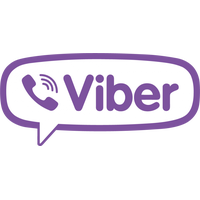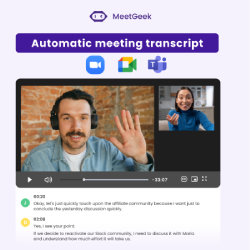
Viber is a popular cross-platform messaging and voice over IP (VoIP) application developed by Rakuten, a Japanese e-commerce and internet company. Launched in 2010, Viber allows users to exchange text messages, make voice and video calls, send images, files, and videos, and join group chats. Its user-friendly interface and robust feature set have made it one of the leading communication platforms worldwide, especially in regions like Eastern Europe, the Middle East, and parts of Asia.
Background and Growth
Initially designed as a mobile app for iOS and Android, Viber has expanded its compatibility to include Windows, macOS, and Linux, making it accessible on both desktop and mobile devices. Over the years, Viber has introduced various features to differentiate itself from competitors like WhatsApp, Facebook Messenger, and Skype. With more than 1 billion users globally, Viber has become an essential tool for personal and business communication.
Rakuten acquired Viber in 2014 for $900 million, with the intention of expanding its reach into global communications and digital services. Under Rakuten's ownership, Viber has added several new features, particularly in the areas of privacy, user engagement, and business solutions.
Key Features of Viber
-
Free Messaging and Calls: Viber allows users to send unlimited text messages, photos, videos, and voice messages to other Viber users for free, provided they have an internet connection. It also supports free HD-quality voice and video calls, making it an attractive alternative to traditional telecom services.
-
Cross-Platform Compatibility: Viber works on smartphones, tablets, and computers, making it versatile for users who switch between devices. The seamless synchronization between the app on mobile devices and desktops ensures that conversations are updated in real-time across all platforms.
-
Viber Out: While Viber-to-Viber calls and messages are free, Viber Out is a feature that allows users to call non-Viber users, landlines, and mobile numbers around the world at competitive rates. It’s particularly useful for international calling when cellular rates are expensive.
-
Stickers and GIFs: Viber offers an extensive collection of stickers and GIFs, which can be downloaded and used in chats. These stickers are a significant part of the app’s user experience, offering a fun and expressive way to communicate.
-
End-to-End Encryption: Privacy and security are core principles of Viber. The app uses end-to-end encryption for all messages and calls, ensuring that only the intended recipients can access the content. This feature positions Viber as one of the most secure messaging apps available. Additionally, Viber offers a feature called “Hidden Chats,” which allows users to hide specific conversations from the chat list, accessible only with a PIN.
-
Group Chats and Communities: Viber allows users to create group chats with up to 250 participants, making it a convenient platform for large-scale communications among friends, family, or coworkers. Communities, which are public groups, can host unlimited members, allowing brands, influencers, or any individual to build and engage with a large audience.
-
Public Accounts and Business Messaging: Viber has extended its services to businesses, allowing them to create public accounts where they can interact with customers. These accounts enable brands to offer customer support, share updates, and run marketing campaigns. The messaging platform also supports chatbots, allowing businesses to automate responses and offer self-service solutions to customers.
-
Disappearing Messages: Users can send messages that disappear after a set period, enhancing privacy and ensuring that sensitive information doesn’t linger indefinitely. The message disappears from both the sender's and recipient's device.
-
Viber Communities: This feature enables large groups of users to join and interact in forums. Admins have various tools to manage these communities, moderate discussions, and keep engagement high.
-
International Reach: Viber's appeal extends globally, but it's particularly popular in Eastern Europe, the Middle East, and Asia. Its international calling feature and ability to send messages to users around the world make it a favored choice for staying connected across borders.
-
Multimedia Sharing: Viber allows users to send multimedia files, such as photos, videos, and audio messages, directly through the chat interface. It also supports sharing of files like PDFs, Word documents, and other file formats, making it useful for both personal and professional communication.
-
Desktop and Tablet Support: Viber has extended its reach beyond smartphones by offering a desktop version that syncs with mobile devices. This feature is handy for users who want to send messages, make calls, or share files from a desktop interface, providing more flexibility.
Conclusion
Viber is a powerful communication tool with a comprehensive feature set that caters to personal and business needs. Its focus on privacy, cross-platform functionality, and international calling makes it a standout choice in the crowded messaging app market. By continuously improving its features and adapting to user needs, Viber has remained relevant and popular among a global user base. Whether for everyday communication or business engagement, Viber offers a flexible and secure platform for staying connected.









